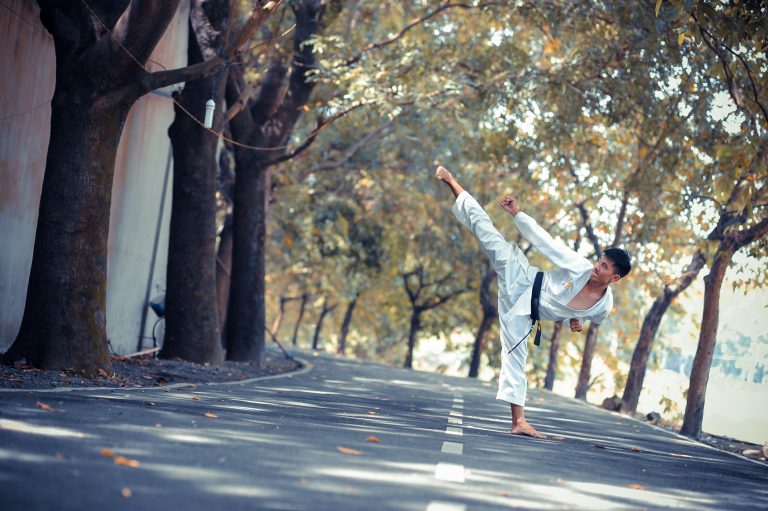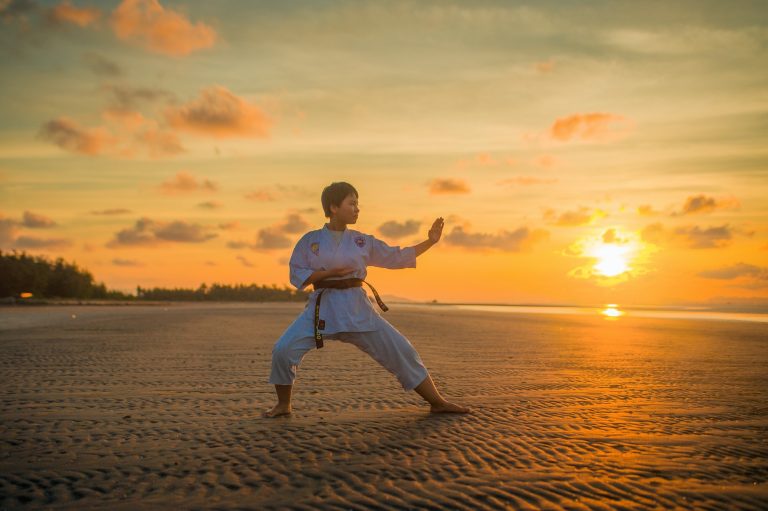Karate: Is It Right for Your Child?
If your child is searching for a martial art to explore, one of the best options on the table is karate. This activity has many benefits and can be tailored to any age or skill level. But is karate the right option for your child?
This article will provide you with an overview of karate, discuss its various benefits, and help you decide if it is the best choice for your child. We will cover topics such as the types of karate, karate classes, safety issues, and the cost of karate. By the end of this blog post, you will have the knowledge you need to make the right choice for your child.
What Is Karate?
Karate (空手) is a Japanese martial art that emphasizes strikes and blocks with the hands and feet. It has roots in Chinese martial arts, but it has developed its own distinct style in Japan over the centuries. Karate is one of the best known martial arts and is practiced in more than 140 countries.
Karate is typically divided into two main styles: kata (forms) and kumite (sparring). In kata, practitioners perform a sequence of defensive and offensive movements. Kumite involves sparring with an opponent. Both styles are important for developing timing and skill, as well as learning self-defense techniques.
Karate can be practiced by people of any age or skill level. Children often learn how to control their energy and develop self-defense skills through karate. Adults can use karate to stay healthy, practice self-discipline, and build self-confidence.
Benefits of Karate
Karate offers many physical, mental, and emotional benefits for both kids and adults:
- Improves strength and endurance: Karate requires physical exertion and makes you stronger over time. It also helps increase your endurance, which can benefit everything from running to playing sports.
- Develops flexibility: Karate builds flexibility by stretching muscles and by developing balance and coordination.
- Boosts mental and emotional strength: Karate can help improve problem-solving skills, build self-confidence, and reduce stress levels.
- Teaches discipline: Karate requires a great deal of discipline and will help your child gain self-control.
- Encourages physical activity: Karate encourages physical activity, which is essential for a healthy lifestyle.
Types of Karate Classes
When looking to enroll your child in karate, it is important to find the right class for them. Here are some of the most common types of karate classes for children:
- Youth classes: These classes are designed for children from ages six to twelve and are designed to teach basic karate techniques.
- Intermediate classes: These classes are for children ages nine to fourteen who have already taken some classes. They will focus on refining the techniques learned in the youth classes.
- Advanced classes: These classes are intended for children ages twelve to sixteen who have mastered the basic techniques and are ready to learn more advanced moves.
Safety Issues With Karate
While karate is an excellent sport for many children, it is important to be aware of potential safety issues.
Most karate classes require participants to wear protective gear such as shin pads and headgear. Additionally, participants should be aware of potential injuries that can occur during sparring such as sprains, bruises, or broken bones. As with any physical activity, it is important to make sure your child understands how to stay safe.
It is also wise to consult a doctor prior to enrolling your child in a karate class to make sure they are physically capable of taking part in vigorous physical activity.
The Cost of Karate Classes
The cost of karate classes varies depending on the location and type of class. Many dojos offer discounts for multiple-class packages or long-term memberships. Additionally, some dojos have scholarships available for those who cannot afford a full package.
It is important to remember that the cost of karate classes should not be a major factor in your decision-making process. Finding the best option for your child should be your primary concern.
Conclusion
Karate is a great option for children looking for a martial art to explore. It offers many physical, mental, and emotional benefits that make it an excellent choice for kids of any age or skill level. Plus, there are a variety of classes available that can fit your schedule and budget.
With all that said, it is important to be aware of potential safety issues when enrolling your child in a class. Make sure they have all the essential safety gear and understand how to properly protect themselves while sparring. Additionally, it is wise to consult a doctor prior to starting karate classes to ensure they are physically capable of engaging in vigorous physical activity.
Finally, if you choose to enroll your child in a karate class, it is essential to find a program that is right for them. Whether they are just starting out or are an experienced practitioner, it is important that they find the right class that will allow them to gain valuable skills in a safe environment. With thorough research and due diligence, you can find the perfect program for your child.
Karate: Is It Right for Your Child?
Karate is one of the most popular martial arts, and it’s no surprise that many parents are considering it as an activity for their child. However, some parents might have concerns about whether it’s the right choice for their child. In this article, we will answer some of the most frequently asked questions about karate for children.
What is Karate?
Karate is a Japanese martial art that originated in Okinawa in the 19th century. It’s a combination of physical and mental discipline that emphasizes self-defense techniques, strength, and agility through various forms of punches, kicks, and strikes.
What are the Benefits of Karate for Children?
Karate can benefit children in numerous ways. Here are some of the top advantages of learning karate:
1. Physical Fitness
Karate can help children develop their physical fitness by improving their strength, agility, flexibility, and overall coordination. It’s a great way to encourage healthy habits and improve fitness levels, which can lead to long-term health benefits.
2. Self-Defense Skills
One of the main benefits of karate is learning self-defense skills. This can help children develop confidence and self-esteem, knowing that they have the skills to protect themselves if necessary.
3. Mental Discipline and Focus
Karate requires mental focus and discipline. Children who practice karate learn to concentrate on their movements and improve their overall attention span. This can benefit them not only in martial arts but also in other aspects of life, such as academics and personal relationships.
4. Respect and Self-Control
Karate emphasizes respect and self-control, both towards themselves and others. Children learn to show respect towards their instructors, training partners, and opponents. They also learn how to manage their emotions and behave appropriately even when facing challenging situations.
What Age is Appropriate for Karate?
Many martial arts schools offer karate classes for children as young as four years old. However, the ideal age for starting karate varies depending on the child’s physical and emotional maturity. Some children might be ready to begin karate earlier, while others may need to wait until they are older.
Young Children (4-6 years old)
Young children might struggle with the demanding physical requirements of karate, but they can still benefit from practicing basic movements and developing their coordination and balance. It’s essential to choose a karate program that focuses on fun and cooperation rather than strict discipline.
Older Children (7-12 years old)
Older children are typically more physically and emotionally mature and can handle the more advanced techniques and harder training involved in karate. They can benefit from karate’s focus on discipline and self-control.
Teenagers (13-18 years old)
Teenagers are often drawn to martial arts to develop their physical fitness, self-defense skills, and overall confidence. Karate can offer a challenging and rewarding experience for teenagers and help them develop a sense of responsibility and leadership.
Will Karate Teach My Child to Be Aggressive?
One of the most common misconceptions about martial arts is that they promote aggression and violence. However, this is far from the truth. Karate emphasizes discipline, self-control, and respect towards others. It teaches children that violence is not a solution to problems and helps them develop non-violent conflict resolution skills.
That said, it’s essential to choose a reputable and professional karate school that has a focus on character development and positive values. Such schools teach children to use their skills responsibly and only in self-defense situations.
How Can I Choose the Right Karate School for My Child?
Choosing the right karate school for your child is crucial to their success and safety. Here are some key factors to consider when making your decision:
1. Instructor Qualifications and Experience
The instructor’s qualifications and experience are crucial to ensure that they have the necessary knowledge and skills to teach karate safely and effectively. Look for an instructor that has a black belt in karate from a reputable national or international organization.
2. School’s Reputation and Safety Record
The school’s reputation and safety record are essential to ensure that your child is learning in a safe and welcoming environment. Look for schools that have positive reviews from current and former students and parents and an excellent safety record.
3. Curriculum and Class Structure
The curriculum and class structure should suit your child’s needs and goals. Some schools focus more on competition and tournament training, while others prioritize character development and self-defense skills.
4. Location and Schedule
Finally, the location and schedule should be convenient for you and your child. Look for a school that’s easy to reach and offers classes at a time that works for your schedule.
Conclusion
Karate can be an excellent activity for children who want to develop their physical fitness, self-defense skills, and mental discipline. However, it’s essential to choose the right karate school that emphasizes positive values, safety, and character development. By doing so, your child can reap the benefits of karate for years to come.
Inhaltsverzeichnis






